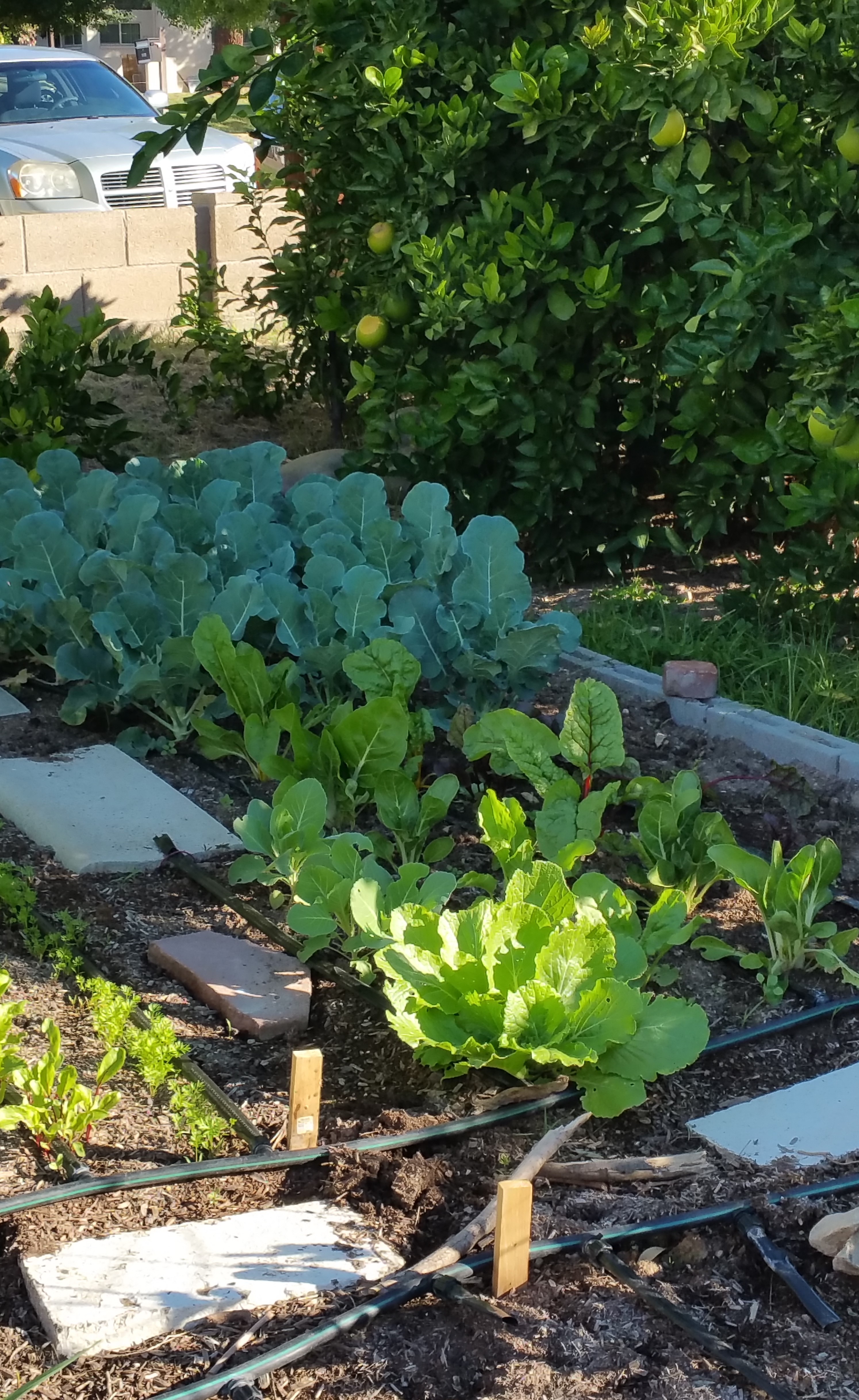The ecological reasons for farming are vitally important, but they cannot create a sustainable urban farm all by themselves. In order to be truly sustainable, and urban farm must also be economically viable. And it must have a strong network of supporters who are committed to carrying out the farm’s mission over the long-term. In other words, it is important to create a profitable farm.
Many farmers take pride in what they produce, and are not so interested in the business side of farming. But a profitable farm and a decent return go a long way to preventing burn-out associated with poor financial health. Good production alone will not make a profitable farm. Here are some tips to build your farm on a firm financial foundation:
Monitor what comes on and goes off of your property.
Industrial farms function much like a factory with many expenses in the form of fuel, fertilizer, seeds and packaging. These materials are used and remixed, and sent back out the gate as produce. In contrast, the Permaculture farmer tries to make use of readily available natural resources to grow food and generate an income. By carefully limiting the number of resources that are trucked onto the farm, depending instead on the sun, rain, bees, atmospheric nitrogen and other free resources, expenses are limited and profitability is maximized. Remember, Profit=Income-Expenses.
Profitability starts with planning.
First, estimate how much money you will need to earn to cover farm operations and your living expenses, with some cushion left over for expansion and unexpected expenses. This is the amount of gross sales that you must achieve in order to sustain your farm. Write this number down.Now the question becomes, from where will these gross sales come? In order to have sales, a farm must have customers. Start to develop your potential customer base early in the process, even while you are in the planning and development stages of your farm. Visit farmers markets and talk to vendors or the market manager to find out how much you might expect to sell on market days.
Open communication with potential customers.
Ask customers of the farmers market what kinds of products they would be willing to buy from you, how much they would buy, and at what price. While there are no guarantees that they will eventually buy from you, you will be developing friendly business relationships and getting a good picture of the economic possibilities and demand in your area.
Using your research, determine what you will grow and how much.
This is your production plan. Initially, you may be dependent on internet information, seed packets and seed catalogs to determine how much seed to sow in order to reap the desired yield. Keep your own records, as yields can vary widely due to variances in climate and cultural practices. Your own records will be more accurate than yield averages.
Track your Money
Keep track of sales and expenses too, as you will need records for your taxes and you can use the data to adjust your operation. For example, if you projected to grow and sell 20 pounds of beans per week for 8 weeks at the farmers’ market, but only sold an average of 15 pounds per week, you could either open a second market at another location to sell the excess, or grow less the next season. On the other hand, if you sold out completely every week, you could either increase production or raise your pricing the next season.
Record Keeping Tools for Urban Farmers
Keeping good records will help you to maximize profits, and it is very easy to do using free or low-cost record-keeping programs that are available to track your farm activity online. The Organic Farmer’s Handbook by Chelsea Green Press provides some excellent spreadsheets that you can download to your computer.
Pay attention to your quality of life.
Don’t forget why you went into farming in the first place. There may be many reasons, and one of them is probably to create the quality of life that you desire. Perhaps you long for a greater sense of community, or you are on a mission to provide healthy food for your family and neighbors. Maybe you want to farm for the sheer pleasure of it, nurturing the land and growing vegetables.Whatever your goals, they cannot be accomplished if you get in over your head and lack the personal energy or manpower to carry them out.
Start Slow and Small
It is generally advisable to start with one or two products and get really good at them before adding more to your operation. This will help to prevent burn-out and will allow you to time to build your community of workers and volunteers who will assist you in accomplishing your goals.
Plan Carefully to Prevent Burnout
Careful planning and configuration of your farm elements according to Permaculture principles will also go a long way to conserving your energy. This will aid you to accomplish your mission without burning out. Consider your layout, placing elements that you will visit often near to your home base and ensuring that there is easy flow between related elements. Set up your systems so that they are easy to manage, using creativity to hone and improve them as you develop farming experience. Use your knowledge of whole systems thinking to create a farm that works with nature, rather than spending energy to change or obstruct natural processes.
Develop a strong network.
Networks of people do not form overnight or without effort, but if you prioritize developing lasting relationships with your customers, workers, other farmers and your neighbors, the energy and input they supply can greatly influence the success of your farm.Who should you include in your network?
1. Getting to know more experienced farmers is a must.
By getting to know one or two, you will have someone to call on should you need some information or advice.Secondly, familiarize yourself with your local university agricultural extension.
2. Every state has a land-grant university with extension offices that exist to help local farmers and gardeners.
They offer free and low-cost education and many of them have programs specifically for beginning farmers. By taking advantage of their services, you will not only learn about local farming, but you will also rub shoulders with other farmers and discover farm resources that are available in your area.
3. If you have livestock, consult with a vet and keep their number handy in emergencies or for routine care.
4. Finally, nurture and expand your network.
Begin to invite people to your farm, offering them education, produce and whatever else you have to barter in exchange for help with daily activities and special projects. Find out what skills are available to you within your willing network of employees and volunteers, so that you know whom to call when you are in need of help. If you are warm, friendly, enthusiastic and generous, you will attract folks who want to be part of your project.
Apply Thoughtful Creativity to Create a Profitable Farm
As a Permaculture farmer, you do not have to do things the way that other farmers do. Use mindfulness and creativity to assess your processes to come up with easier, more productive methods to create a profitable farm. As an example, perhaps you will visit a farm and see that it has a compost pile near the raised bed gardens, and notice that workers are transporting compost to the beds via wheel barrows. If you are thoughtfully considering the process, perhaps you may ask yourself why composting has to occur separately from the garden.
On your own farm, you decide to institute a system of rotating beds and composting in the ones that are fallow, thereby reducing the effort to haul it. With a little experience, perhaps you could come up with an even better way to compost over time. As you mindfully hone your processes, the options are limited only by your imagination and the skills available to you within your network.

Learn more about how to start a profitable farm:
Turn Dirt into Dollars with an Urban Farm by Profitable Plants Digest
Urban Animals: How to Raise Chickens, Goats and More in Your Backyard -taught by Kari Spencer with Greg Peterson


